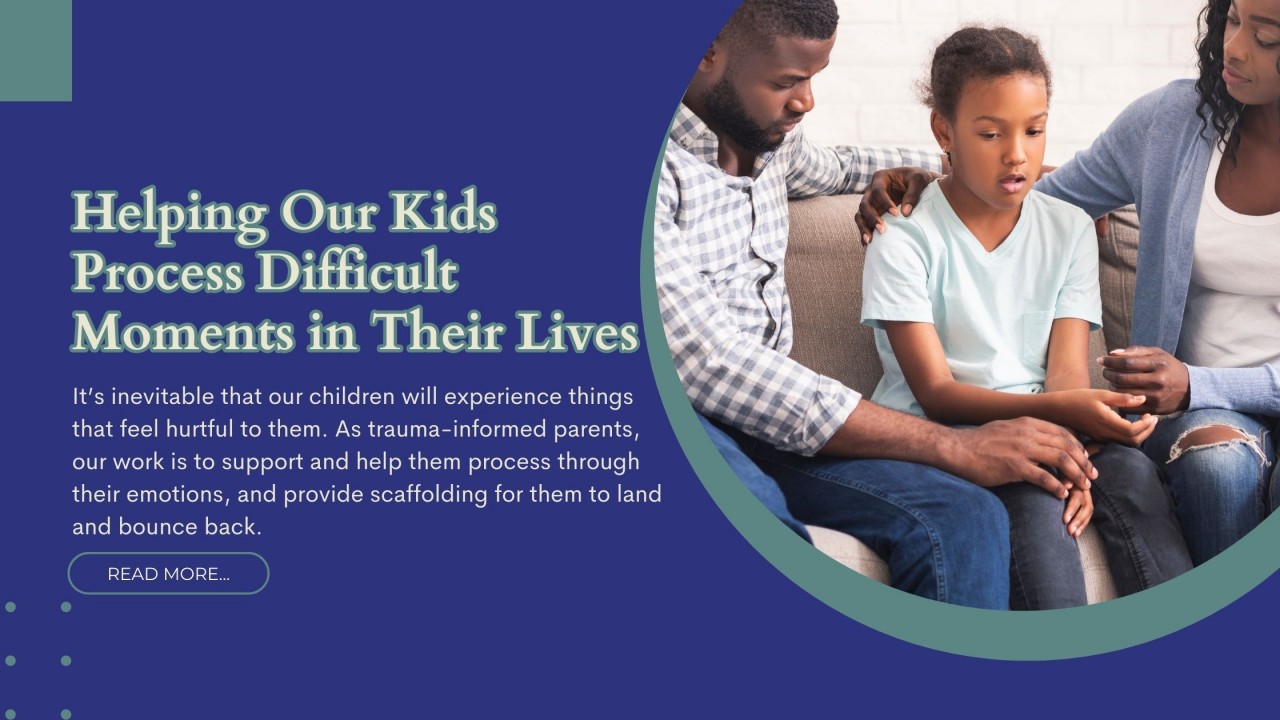(404) 793-0011 | drmaiysha@drmaiysha.com
Helping Our Kids Process Difficult Moments in Their Lives
As an NLP Coach, Consultant, and trauma-informed NLP trainer much of the application of my skills comes in my own personal life... particularly as a parent. Recently, I took my son to a birthday party of a long-time friend of his. They had previously gone to the same school when they were in Montessori pre-K and kindergarten. Subsequently, they transitioned to different schools, but we managed to continue to keep our families connected. Over the last year, it has grown more difficult due to various life circumstances to connect, and so this birthday party was much anticipated for both me and my son. When we arrived at the party, there were at least 20 children present. They were all outside playing some sort of tag-like game. I thought Delsyn for sure would just run in there and jump in to join them, but what happened was unexpected.
Delsyn clung to me tightly, seemingly intimidated by the mass of children running around. I typically don't pressure him to interact. I allow him to get his bearings and move as he feels comfortable. Of note, I tend to occupy a similar space when going into unknown unfamiliar situations. His friend immediately acknowledged him, and welcome to men but Delsyn was still hesitant. What followed was an hour of Delsyn staying close to me and conversations of what he needed to feel comfortable engaging. He attempted at some point to engage, but very timidly, and was unable to "gel" with the group. Ultimately, we ended up leaving the party early.
In the car afterwards, I noticed Delsyn very quiet. He says to me, "Mommy, I'm sad that we left the party early, but I feel they would have a better time without me anyway". That statement alone broke my heart. He went on to tell me that he felt like he didn't fit in and that the other kids wouldn't even look at him. He felt invisible. My 9-year-old...
As a mom, I knew this was a pivotal moment. He needed to feel seen, heard, and safe to express his emotions.
How do we as conscious parents make it safe for our children to feel everything that they are feeling, and yet empower them with the skills for the next time they encounter that challenge?
The very first thing, I believe is to validate their experience. This is a trauma-informed practice. Acknowledge and validate their experience using their own words. Maybe after using their words, there may be additional language, you can give to them to help them further process what's happening. In my case, I said to him "I know it must feel very hard when you are in a situation where everyone knows each other, and you don't know them...it sounds like that made you feel excluded." He replied, "Yeah, I felt like I didn't belong there".
The second thing is to honor the experience. "It's completely normal to feel that way. It's completely normal to feel all of the feelings you feel about it.
The third thing I want to know is how I can best support him in the moment. "What do you need right now to feel better? Do you need quiet time? Do you need a hug? Do you need to listen to a podcast (that's our thing)? What do you need?"
This does two things: It further validates experience, and models being supported and exploring self-care.
Finally, once the dust settles and they feel better and more regulated, have the conversation that empowers them if they were to be in this situation again. Later in the day, I asked Delsyn if he wanted to talk about what to do if this ever happened again.
It's inevitable that our children will experience things that feel hurtful to them. As trauma-informed parents, our work is to support and help them process through their emotions, and provide scaffolding for them to land and bounce back. This helps them to regain their confidence and expand their own emotional fluency and communication skills. This is where learning neurolinguistic programming can be extremely valuable. Our NLP-trained parents often rave about the ways that learning NLP has helped them to better relate to, support, and empower their children.
Join our NLP community. Learn more about our next NLP training. Expand your listening capacity, learn trauma informed communication, help your children, clients, or loved ones navigate challenges with ease. Go to www.mindremappingacademy.com to learn more about our trainings or visit www.remapmymind.today
To Schedule a NLP Training interest Today.
Stay Informed
When you subscribe to the blog, we will send you an e-mail when there are new updates on the site so you wouldn't miss them.





Comments